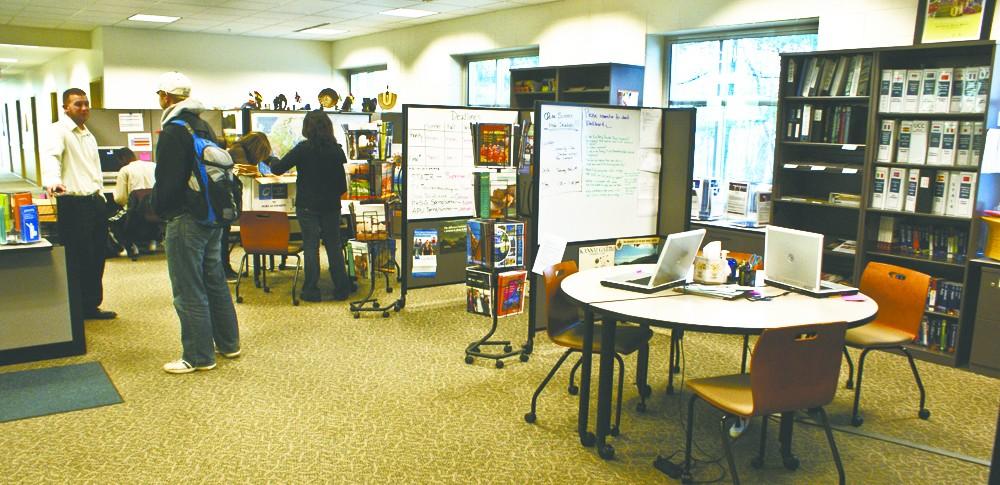Padnos International Center establishes new faculty-led programs

Studying abroad increases a students marketability.
Apr 8, 2010
The Padnos International Center has added five new faculty-led programs to the docket for students seeking study abroad opportunities: Ghana, India, South Africa, Taiwan and New Zealand all made the cut.
With such growth, more students than ever can take the leap into a new culture – something Elena Selezneva, coordinator of Faculty-Led programs, thinks is an important part of a growing global economy.
“Now we live in a global society and our students have to compete for jobs with people from China, India and Brazil,” Selezneva said. “For an employer, a student who has studied abroad is self-motivated, independent, willing to embrace challenges and able to cope with diverse problems and situations.”
African and Indian programs
The Ghana program is a product of a student-initiated service program there in 2009. Following the November 2008 Ghana service trip of Honors College staff member Janaan Decker, Selezneva said many honors students became passionate about making a difference in Ghana. In November 2009, a group of students traveled there for a service learning project and are now planning another for the summer of 2010 in hopes of helping Ghanaians develop thriving and sustainable communities.
Kerala, India will be the destination for students interested in learning about ecological, conservation biology and global sustainability concepts. Students will have field experiences in temperate and tropical locations along with the integration of cultural and international dimensions.
“Cultural and human impacts on ecosystems is one of the underlying themes of the program,” Selezneva said. “This will allow insight into the impacts on biodiversity of agriculture and forestry practices in both countries. It will also allow a comparison of the potential differential impacts of human use on Michigan vs. Kerala ecosystems.”
For students exploring a women and gender studies major, the new faculty-led South Africa program will divide student’s time between an internship, service learning, academic field trips, lectures at the nearby University of Cape Town and experiential learning. It will highlight contemporary issues for women in South Africa around reproductive health, education, violence, etc. Service-learning projects may likely include work in a woman-owned business or working with girls in middle or high school.
*
New Zealand program
*
Heather Van Wormer, professor of anthropology, will lead a group of students to New Zealand to introduce students to the Ecovillage movement. Students will spend four weeks living at Ecovillages and participating daily in sustainability efforts. These communities are found in both urban and rural locations and share an emphasis on both social and ecological sustainability.
“Instead of primarily staying at a university and taking classes, this program will have a decidedly ‘hands-on’ component,” Van Wormer said. “This includes building designs and materials, alternative energy, water systems, farming, etc. Students participating in this program will match their personal interests with an internship experience in these communities — so a student interested in alternative energy will partner with the community individuals responsible for the energy and learn all about the challenges they face and the solutions they have come up with in that community.”
Van Wormer said she is traveling to New Zealand in May to set up relationships and plans the first trip for May of 2011.
*
Taiwan program
*
The final program is based out of Taiwan, consisting of a regular semester where students will register for a regular credit load at GVSU’s sister college in Taipei, Taiwan – National Taiwan Normal University.
Students will take Mandarin language classes for eight credits and three content courses, three credits each, taught by the GVSU faculty on site. Due to the intense immersion, Selezneva said this program should be able to fulfill two to three semesters of Chinese language in one semester. The program does accept students with no background in Chinese language.
Students interested in seeking more information about each program should contact the Padnos International Center.























